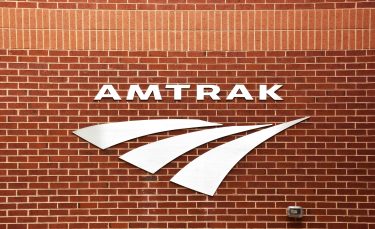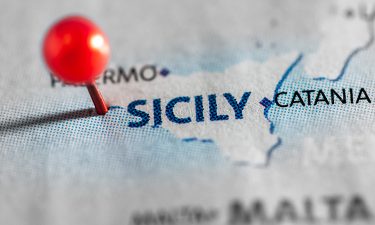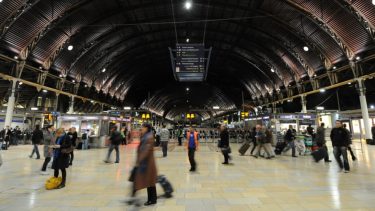In celebration of the 75th anniversary of the launch of the California Zephyr, running between between the San Francisco Bay Area and Chicago, Amtrak has released a list of 25 facts about the iconic route, from here and now.
The California Zephyr was named in San Francisco by actress Eleanor Parker on March 19, 1949.
The first eastbound train from Oakland to Chicago happened on March 20, 1949.
The California Zephyr’s main draw was (and remains) the spectacular scenery along the route.
Those views — many captured in the below video — led to the California Zephyr becoming the first transcontinental train to regularly use dome cars.
The names of all original California Zephyr cars began with the word “Silver,” followed by a theme.
Animals for baggage cars — Silver Stag.
Wild west themes for dome coaches — Silver Lariat.
Dining car names had catering/food service references — Silver Plate.
Sleeping cars were named for trees (Silver Maple), birds (Silver Quail) and geographical features (Silver Canyon).
Dome-buffet lounge cars had names associated with hospitality (Silver Chalet), while the dome-observation-lounge cars had names that invoked scenic vistas (Silver Horizon).
Dubbed the “Cable Car Room” in the 1950s, the buffet lounge paid homage to San Francisco in murals and memorabilia, including scale models of the iconic cable cars.
Until 1958, a West Coast California Zephyr trip began and ended with a ferry ride between San Francisco’s Transbay Terminal and Oakland Pier.
On March 1, 1955, the first baby was born on the California Zephyr while it travelled through Colorado’s Ruby Canyon.
In 1969, the Interstate Commerce Commission (ICC) called the California Zephyr a unique national asset.
Some original California Zephyr cars were sold to other countries and private owners; a number still operate on tourist railroads.
The largest collection of preserved original California Zephyr equipment can be found in Portola, California, at the Western Pacific Railroad Museum.
Amtrak launched its California Zephyr service in July 1983.
The California Zephyr travels 2,438 miles over three days and two nights.
The California Zephyr passes through two mountain ranges: the Rockies and Sierra Nevada Range.
The train reaches a maximum altitude of 9,270 feet above sea level passing through the 6.2-mile-long Moffat Tunnel in Colorado.
The California Zephyr shares tracks with Amtrak’s Winter Park Express, a seasonal train carrying skiers between Denver and Winter Park Resort.
The California Zephyr travels through the infamous Donner Pass, where a wagon train became stranded during the winter of 1846-47. Approximately half of the people survived.
The California Zephyr uses bi-level Superliner rail cars. The train offers two classes of service: Coach and Private Rooms, which include Roomettes, Bedrooms, Bedroom Suites, Family Bedrooms and Accessible Bedrooms.
The California Zephyr features the bi-level Sightseer-Lounge, offering panoramic views along the route upstairs and café service with meals, snacks and beverages for sale downstairs.
From Salt Lake City to San Francisco Bay Area, the California Zephyr loosely follows Interstate 80 along the south shore of the Great Salt Lake, across the Bonneville Salt Flats towards Nevada.
The California Zephyr is Amtrak’s longest route with daily operation.
The California Zephyr departs Chicago at 2:00 p.m. (Central) and Emeryville, CA at 9:10 a.m. (Pacific).
The California Zephyr’s schedule ensures passengers move through the most scenic parts of the route in Colorado, Utah and Nevada during daylight hours. The train stops at 37 stations in California, Nevada, Utah, Colorado, Nebraska, Iowa and Illinois.
In many of the smaller communities it serves, the California Zephyr is the only option for intercity transportation.
In 2018, the California Zephyr saw its highest yearly ridership: 418,203 passengers.


